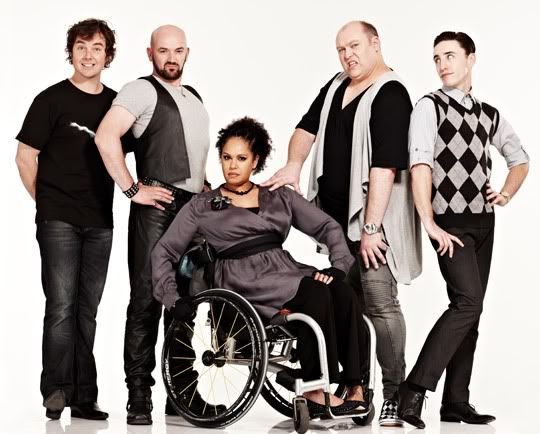*Analysis of Frankenstein in and of itself isn't what I'm primarily interested in here, so I'm not going into the ways in which she does this, but treating it as a given. If you want further analysis of this, I would imagine that there are plenty of published works as well as high school and college term papers about it.
It's especially interesting (to me) to think about what this means in terms of Frankenstein's place as one of the founding texts of science fiction (and some would, not without justification, leave off "one of" and italicize "the").
While it would take almost 150 years for any significant number of SF writers to catch up to Shelley's distrust of the nobility of science, not to mention her woman's perspective (though on both terms there were always exceptions), the rejection of heroic subjectivity is, to my mind, central to SF, despite any appearance to the contrary created by the plethora of individual heroes in the history of the genre. These heroes are, almost without exception,* not so much characters--individuals--as stand-ins for what many (including me in my last SF post) call "the idea as hero." Indeed, it would be very difficult to have a literature where the idea is itself the hero without the rejection of Romantic subjectivity.
*At least in SF of the "classic," pre-1960s era; after about the mid-60s the story of SF gets way more complicated, sometimes for the good, sometimes not.
It doesn't stop there--the SFnal concept of "the sense of wonder," for one, though it is superficially very similar to the traditional Romantic awe in the face of nature, is in fact almost completely different in both content and impact, in a way that is difficult to explain if we don't take Shelley's rejection as foundational. There is much more that could be said about this, and about other aspects of SF that are hugely informed by her rejection, but this post is getting way longer than I meant it to be and I'm not finished yet.
One of the most interesting (again, to me) aspects of this is that Shelley's rejection comes largely out of her perspective as a woman--a perspective that is noticeably absent from almost--but not quite--all pre-1960s SF, and still absent from a majority of the mainstream of the SF of the 1960s and later. The genre is notoriously masculine--even, all too frequently, macho. But the fact that a woman's perspective is so foundational to the genre carries through strongly.
Towards the end of Joanna Russ's frustratingly short essay, "On the Fascination of Horror Stories, Including Lovecraft's" (as collected in the indispensable To Write Like a Woman: Essays in Feminism and Science Fiction), Russ describes a fan party she attended, where the conversation turned to favorite horror stories, and then to the implications of the appeal of horror and SF:
[O]ne very bright young woman described her adolescent reading of SF as a genuinely subversive force in her life, a real alternative to the fundamentalist community into which she had been born. This alternative had nothing to do with the cardboard heroes and heroines or the imperial American/engineering values which she had skipped right over. What got to her were the alien landscapes and the alien creatures. We scholars perhaps tend to forget how much subversive potential both SF and fantasy have, even at their crudest.Unfortunately, as with so many of the countless fascinating points she raises in this uncharacteristically skimpy essay, she leaves it there. But the point is made, and taken--and recognized. I have seen numerous accounts of women saying similar things--and though I am not a woman, nor did I grow up in an environment that was at all oppressive (thanks, mom and dad!) beyond the general background radiation of our culture, I am queer and a general discontent who grew up in a heterosexist, conformist society, and what this unnamed woman and Russ have to say strikes a strong chord with me. On reading Frankenstein, I can't help but think that we all have Mary Wollstonecraft Shelley to thank for this intrinsic subversivity,* indestructible despite the occasional best efforts of macho writers who wished it would go away. It didn't.
*Yes, I know, Firefox's spelling check knows, the dictionary knows that it should be subversiveness, but that word is wicked ugly to me.

